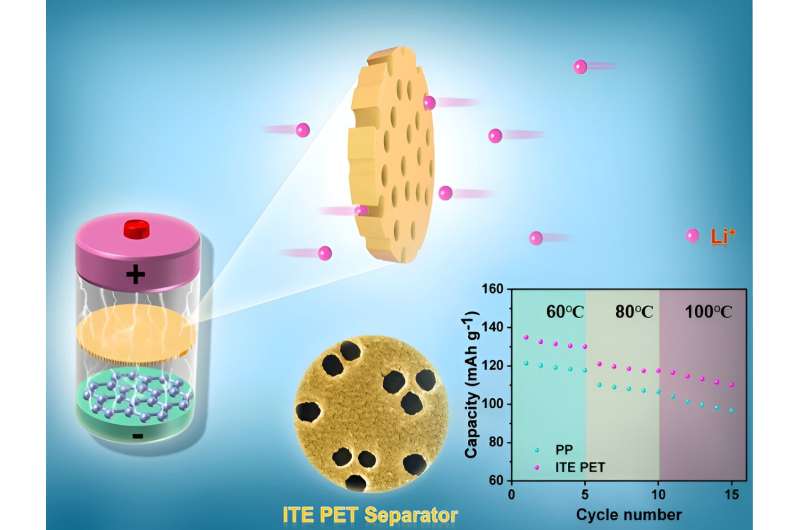Scientists have fabricated high-temperature-resistant polyethylene terephthalate (PET) separators for lithium-ion batteries. The study, by researchers from the Institute of Modern Physics (IMP) of the Chinese Academy of Sciences (CAS) and the Advanced Energy Science and Technology Guangdong Laboratory, was published in ACS Applied Materials & Interfaces.
The separator, as a key part of the lithium-ion batteries, plays a crucial role in ensuring battery safety as it can insulate the cathode and anode to avoid short-circuiting and it can provide transport paths for lithium ions.
In previous studies, scientists improved the performance of polyolefin separators by coating them with inorganic or organic materials. However, these methods cannot fundamentally improve the thermal stability of separators.
Developing new lithium-ion battery separators with high-temperature resistance is of great importance to enhance the safety of lithium-ion batteries.
Combining heavy ion irradiation and chemical etching technologies, the scientists developed PET-based separators with high-temperature resistance.
Compared with commercial polyolefin separators, the PET-based separators possess nanochannels with uniform channel size and distribution, and demonstrate not only high electrolyte wettability but also exceptional thermal stability, capable of withstanding temperatures as high as 180 °C. Moreover, the test results showed that the PET-based separators exhibit good cycle performance at both room temperature and high temperature with a high lithium-ion transfer number of 0.59.
This study applies heavy ion irradiation technology to the field and provides a competitive approach to producing thermotolerant separators.

